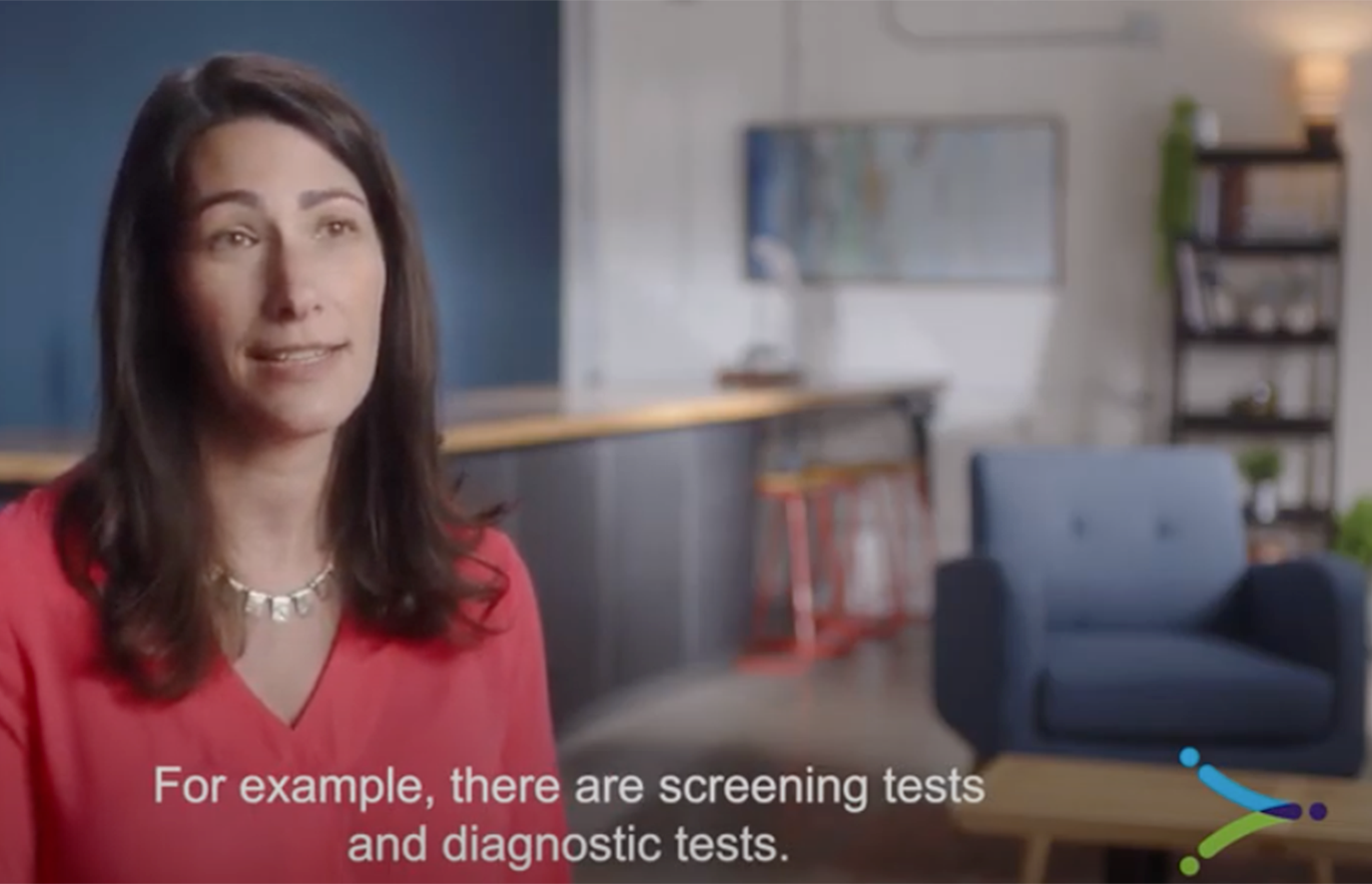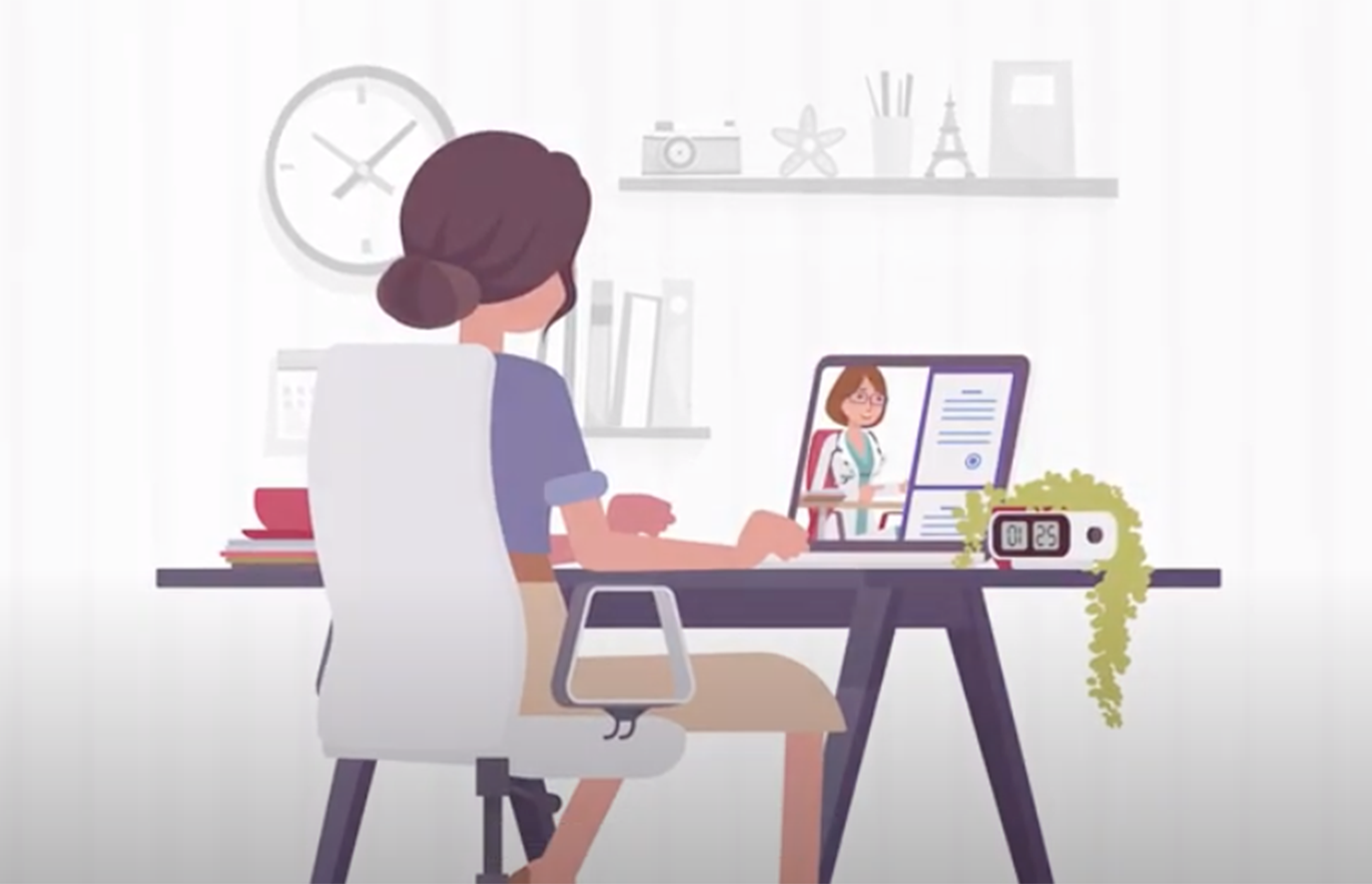Cystic Fibrosis & Pregnancy
What Is Cystic Fibrosis (CF)?
Cystic fibrosis (CF) is a lifelong condition that impacts breathing and digestion, and can vary in severity. Some people with CF have more mild symptoms like mild breathing problems and difficulty gaining weight, while others with CF can have severe symptoms and require lung transplants and other invasive treatments. While there is no cure for CF, there are various treatments currently available and many ongoing research studies working to find better treatments for the future.
CF is one of the most common genetic conditions, especially in people of Caucasian and Ashkenazi Jewish descent. Approximately 1/25 Caucasians are carriers, and 1/23 people of Ashkenazi Jewish descent, but CF can occur in anyone of any ancestry. In the United States alone, approximately 1,000 new cases of CF are diagnosed every year.
CF is inherited as an autosomal recessive genetic disease, meaning both parents must carry a change in the CF gene in order to be at risk to have an affected pregnancy. Couples in which both partners are carriers have a 1 in 4 (25%) chance to have an affected child with each conception. Pregnancy genetic counseling is recommended if one or both individuals in a couple are found to be carriers or if there is a family history of CF.
Ideally, carrier screening for CF is conducted prior to pregnancy, but prenatal genetic testing can also be done during the first and second trimesters. Knowing if you and your reproductive partner are carriers of CF allows you to consider alternative reproductive options or testing during pregnancy. Also, since some treatments for CF should begin as soon as a baby is born, knowing whether your baby has CF before delivery can allow more time to prepare for his or her needs in advance.
To learn more, visit Genetic Testing and Pregnancy.
If you are interested in learning more about carrier screening, or need assistance with ordering carrier screening for yourself or for your partner, visit the Genome Care Navigator.
How Can CF Impact My Pregnancy?
If you or your reproductive partner are found to be carriers of CF, your doctor will likely recommend that you meet with a genetic counselor to learn more about the recommended next steps. If you and your reproductive partner are both carriers, you will be offered prenatal diagnostic testing through chorionic villus sampling or amniocentesis to determine whether your baby is affected. You will also likely be seen by a maternal fetal medicine specialist, which is a doctor who specializes in high risk pregnancies.
Typically, babies with CF will not have any health complications in utero. However, there may occasionally be early signs of CF-associated digestive problems that may show up on an ultrasound. In these cases, the ultrasound may show a difference in the size of the bowel or a brightness in the bowel which may be an early sign of a build-up of thick sticky mucus that is common in people with CF. It is important to note that not all babies with CF will show signs of their condition on ultrasound, and not all babies who have these signs on ultrasound will have CF.
Getting carrier screening before a pregnancy, or early in a pregnancy, gives you more time to learn about the chance for you to have a child with CF, the prenatal testing options available to you, and what to expect after delivery. Early carrier screening is especially important if you have a family history of CF, and it is also important to make sure that the CF carrier screening you have done is the right one for you based on your family history.
Why Should I Consider CF Testing?
The chance to be a carrier of CF varies by ethnicity. Though anyone of any ancestry can be a CF carrier, it is more common in people of Caucasian and/or Ashkenazi Jewish descent with a rate of approximately 1/25 Caucasians and 1/23 people of Ashkenazi Jewish descent being carriers.
Expectant parents who want to assess their chance to have a child with CF should undergo carrier screening. Carrier screening can be performed either before or during a pregnancy. People who find out they are carriers of CF have the option to test the baby during pregnancy through chorionic villus sampling (CVS) or amniocentesis. For people who get preconception genetic testing and find out they are carriers before getting pregnant, they have the choice to pursue alternative reproductive options, such as egg or sperm donation from someone who is not a carrier or in vitro fertilization with preimplantation genetic testing of the embryo.
The decision to undergo carrier screening for CF, as well as the decision to have prenatal testing for CF via CVS or amniocentesis, is a personal choice and there is no single decision that is right for everyone. However, you may consider these tests if:
- you want to know about the risk to have a child with CF so you can consider alternative reproductive options such as in vitro fertilization, egg/sperm donation, or adoption.
- you would want to know during a pregnancy whether your baby has CF so you can make a plan for the future, which could include changing the course of your pregnancy, finding the right doctor for your child, learning about treatments that are available and research that is being done, and building a support system before the baby is born.
How is CF Diagnosed in Pregnancy?
The first step to learning what the chance is for you to have a child with CF is to undergo carrier screening, which can be done before or during a pregnancy. Expectant parents who are carriers of CF can undergo prenatal testing via chorionic villus sampling (CVS) or amniocentesis to determine whether their baby will have CF or not.
CF Carrier Screening
Carriers of CF are typically healthy, might have no known family history of the condition, and often do not know they are carriers. Ideally, carrier screening is conducted prior to pregnancy, but screening can also be done during the first and second trimesters. Carrier screening can be performed using a blood sample, saliva sample, or buccal (cheek) swab and results are typically available in two to three weeks.
If you are interested in learning more about carrier screening, or need assistance with ordering carrier screening for yourself or for your partner, visit the Genome Care Navigator.
Chorionic Villus Sampling (CVS)
If both biological parents are carriers of CF, chorionic villus sampling (CVS) can be performed during a pregnancy to find out whether the baby will have CF. CVS is a procedure in which a small sample of placental tissue (chorionic villi) is obtained either transcervically or transabdominally under ultrasound guidance between 11-13 weeks of gestation.
Amniocentesis
If both biological parents are carriers of CF, amniocentesis can be performed during a pregnancy to find out whether the baby will have CF. Amniocentesis is a procedure that involves placing a needle into the amniotic cavity under ultrasound guidance to remove a small sample of amniotic fluid. Amniocentesis is typically performed after 16 weeks gestation.
Learn More About CF Screening
If you have a family history of CF, you may feel especially motivated to seek carrier screening. However, many carriers of CF do not have any known family history of the condition. Therefore, anyone who is pregnant or who is planning a pregnancy should discuss CF carrier screening with their doctor or with a genetic counselor.
If you want to learn more about carrier screening for CF, as well as other carrier screening recommendations based on your ethnicity or your personal or family medical history, visit the the Genome Care NavigatorTM.







